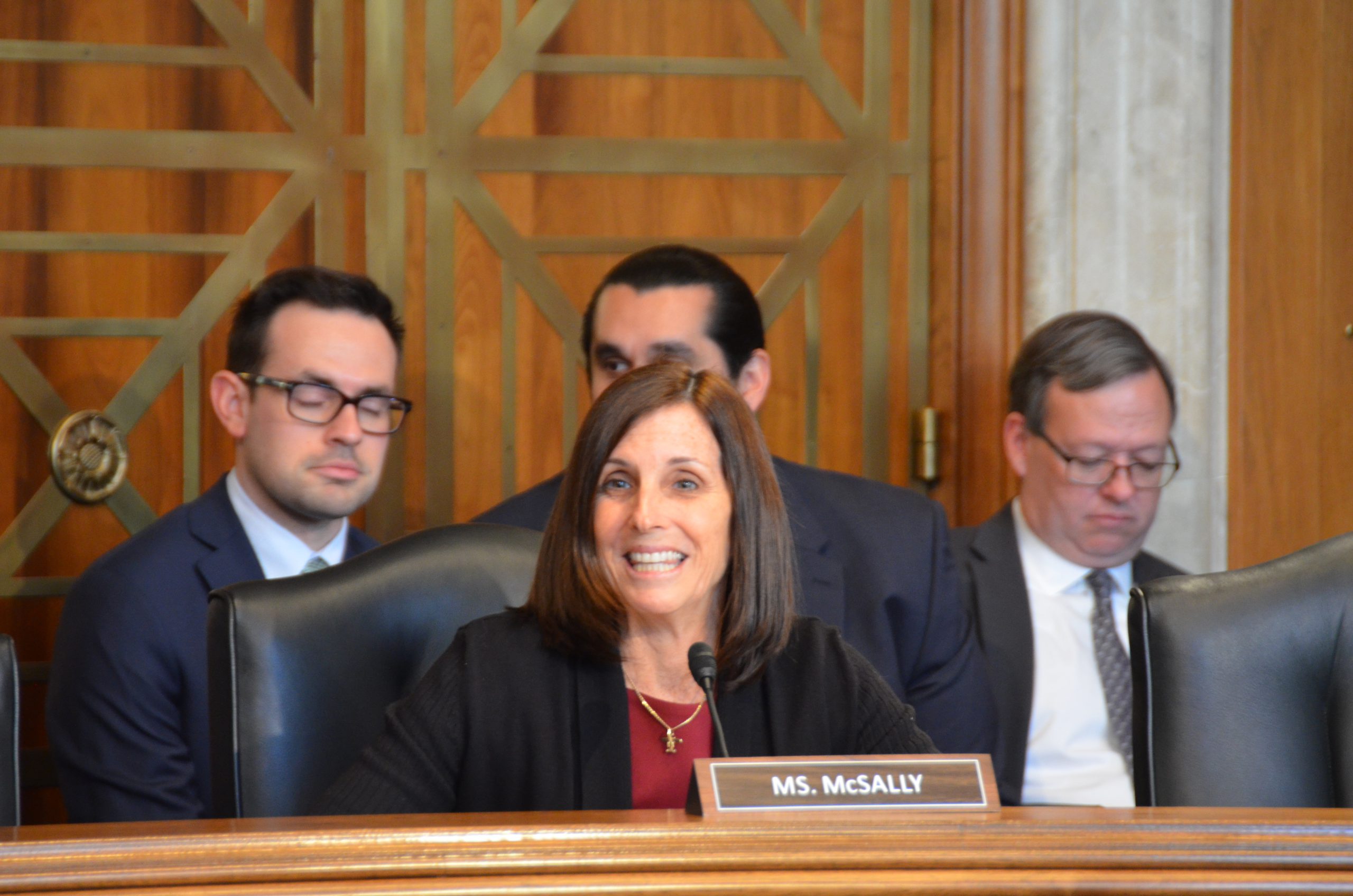| FOR IMMEDIATE RELEASE
May 8, 2020 |
| McSally Introduces Bipartisan Legislation to Expand Health Care Resources for Urban Indian Health Organizations Amid Pandemic
U.S. SENATE – U.S. Senator Martha McSally (R-AZ) introduced bipartisan legislation with Senators Tina Smith (D-MN), James Lankford (R-OK), and Tom Udall (D-NM) to boost health resources for urban Indian health organizations as the coronavirus (COVID-19) pandemic forces many to grapple with financial hardship and even close operations. The Coverage for Urban Indian Health Providers Act would amend the Indian Health Care Improvement Act to create parity within the Indian Health System (ITU system). The ITU system is made up of the Indian Health Service, Tribal health programs, and Urban Indian Organizations (UIOs). UIOs provide culturally competent care for the over 70 percent of American Indians and Alaska Natives who live in urban centers, but right now providers at UIOs are not offered the same malpractice liability protection as other Indian Health Care Providers. The Coverage for Urban Indian Health Providers Act would expand Federal Torts Claim Act coverage (FTCA) to UIOs, which are currently required to divert already-limited resources away from patient care to cover liability costs. Full bill text can be found here. “Arizona is home to four Urban Indian Organizations, all of which are forced to spend hundreds of thousands of dollars annually on liability insurance that could otherwise be spent on patients,” said Sen. McSally. “Our legislation will fix this inequity by extending federal liability coverage to our urban Indian health groups, dramatically decreasing the cost of malpractice insurance while freeing up more money for patient care. Bringing parity to Urban Indian Health is an important step to improving Native American health care across the board.” “Minnesota’s urban Indigenous community has been hit hard by the coronavirus pandemic, yet many urban Indian health organizations are often forced to spend hundreds of thousands of dollars on costly liability protection instead of being able to use those resources to provide health care to Native community members,” said Sen. Smith. “This is unacceptable. We need to make sure that urban Indian organizations can use every dollar they have to give urban Indigenous individuals the care they need. I’m glad to work in a bipartisan way to bring financial relief to these vital organizations.” “There are two prominent UIOs in Oklahoma that faithfully serve our Tribal communities’ healthcare needs in addition to the other important Tribal health facilities around the state. I am glad our bill addresses this disparity in the law to help ensure equal access to medical malpractice liability coverage for the services they offer,” said Sen. Lankford. “Federal tort law currently omits coverage for UIOs, and especially during the coronavirus pandemic, UIOs, like other already covered Tribal health facilities, need to have the peace of mind that they can utilize their funds for care, not court cases.” “Urban Indian health programs funded by the IHS are facing revenue shortfalls while ramping up services to combat the COVID-19 pandemic. And, as a result, many of these critical health care programs are struggling to keep the lights on and their doors open. They shouldn’t be the only branch of the IHS that has to divert resources away from health care services to cover exorbitant liability costs,” said Sen. Udall. “The federal government’s trust and treaty responsibilities to Native Americans do not stop at reservation boundaries. Nearly 70 percent of American Indians and Alaska Natives live in urban areas and Congress must ensure they have access to quality health care — especially during this public health crisis. This legislation is a common-sense measure to provide Urban Indian Health Programs with the same federal protections given to all other Indian Health Care Providers.” Background:
|
Sen. Martha McSally (R-Arizona)
Join the Conversation

